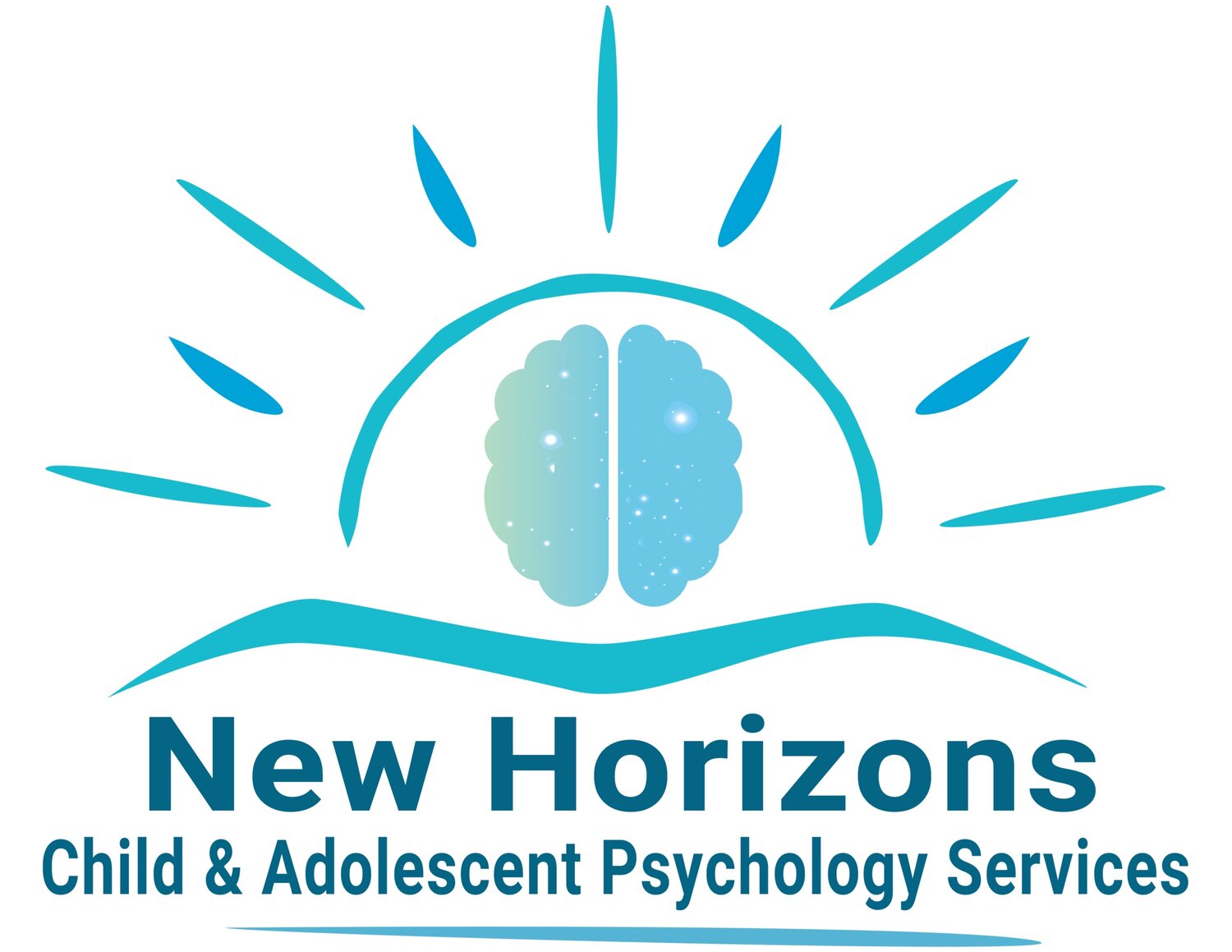Autism Assessments and Support
At New Horizons, we evaluate children and teens for Autism Spectrum Disorder (ASD) and offer a neuroaffirming approach. (A neuro-affirming practice means that we believe in a strengths and rights-based approach to developmental differences and aim to provide support and adaptations that affirm the child’s neurodivergent identity.)
When should you consider an assessment for ASD?
You may wish to have your child or teen assessed for possible ASD if they are experiencing the some (not all necessarily) of the following: challenges with social skills or perspective taking, avoiding social interactions, preferring to spend time engaging in their preferred activity, having difficulty with transitions, rigid/inflexibility, anxiety, difficulties communicating, making/sustaining friendships, and sensory sensitivities such as with lights, noise, fabrics, food, water etc.
We are learning more and more about Autism, and how it is presented in our youth, as well as how it presents differently in males and females. Often, autism can be missed in females. Many youth with Autism are also experiencing significant anxiety and/or attention difficulties, as well as difficulties with motivation and completing tasks. You may have noticed some concerning changes in your adolescent’s behaviour and could benefit from a consultation session. Please reach out to use for an initial consultation call so we can help you determine the next steps.
Autism in Girls
Autism Spectrum Disorder (ASD) is a neurodevelopmental condition that affects how individuals communicate, socialize, and process sensory information. While autism can affect anyone, girls and teen girls are often underdiagnosed or misdiagnosed, leading to delays in support and intervention.
Why Is Autism in Girls Harder to Diagnose?
Research shows that autism may present differently in females than in males, and diagnostic criteria have traditionally been based on male traits. Girls often develop stronger social imitation skills and may mask or "camouflage" their symptoms more effectively.
Common reasons for missed or late diagnoses:
Masking behaviours: Girls may mimic peers or use learned scripts to appear socially typical.
Different interests: Special interests in girls may seem more socially acceptable (e.g., animals, books, fashion), making them less noticeable as a diagnostic clue.
Internalized traits: While boys may show external behaviours (e.g., outbursts, repetitive motions), girls often exhibit internal struggles like anxiety, depression, or perfectionism.
Misdiagnosis: Symptoms are sometimes mistaken for ADHD, anxiety, eating disorders, or borderline personality disorder.
Signs of Autism in Girls and Teen Girls
While every individual is unique, here are some common signs of autism in females:
Social Communication:
Difficulty understanding social cues or maintaining friendships
Preference for one-on-one interactions over group settings
Appearing socially shy, withdrawn, or overly eager to please
Using a rehearsed or scripted conversation
Behaviour and Interests:
Deep interest in specific topics (which may change suddenly or become all-consuming)
High levels of organization or perfectionism
Sensory sensitivities (e.g., to clothing textures, sounds, lights)
Repetitive behaviours, though often subtle (e.g., picking at skin, tapping fingers)
Emotional Wellbeing:
High levels of anxiety, especially in social situations
Meltdowns or shutdowns, often after school or social events
Masking fatigue (exhaustion from trying to "fit in")
Getting a Diagnosis
Diagnosing autism in girls and teens requires a comprehensive, individualized approach that goes beyond checklists.
Steps in the diagnostic process:
Initial observation: Parents, teachers, or healthcare providers notice developmental or behavioural differences.
Developmental history: In-depth interviews covering social, emotional, and sensory behaviours since early childhood.
Standardized assessments:
Multi-disciplinary evaluation: May include input from psychologists, speech-language pathologists, occupational therapists, and pediatricians.
It’s important to seek professionals who understand the nuances of female autism and recognize how masking may impact assessments.
Why Early Diagnosis Matters
Early and accurate diagnosis can:
Provide clarity and validation
Open access to appropriate therapies and accommodations
Support better mental health outcomes
Help girls understand and embrace their neurodivergent identity
Autism in girls and teen girls often goes unnoticed due to gender biases in diagnosis and the subtler way traits can present. By raising awareness and adapting diagnostic practices, we can ensure that more girls receive the recognition and support they deserve.
Neurodiversity Counselling Support for Children and Teens with ASD
At our practice, we offer tailored counselling support for children and teens on the Autism Spectrum (ASD), with a strong focus on enhancing social skills, self-esteem, and self-regulation.
Our approach is strengths-based and neurodiversity-affirming, creating a safe, supportive space where each young person can explore their identity, build meaningful connections, and develop tools for navigating the world with confidence. We understand that no two individuals on the spectrum are alike, which is why our sessions are highly individualized, flexible, and grounded in evidence-based practices.
Key Areas of Focus:
Social Skills Development:
We support young people in understanding social cues, building and maintaining friendships, and navigating group dynamics. Through role play, games, and real-life scenarios, we help them grow their communication abilities in a way that feels natural and empowering.Self-Esteem Building:
Many children and teens with ASD struggle with self-worth due to social misunderstandings or past challenges. We work gently to nurture a positive self-image, helping them recognize their strengths, celebrate their uniqueness, and develop a strong sense of identity.Self-Regulation Strategies:
Emotional regulation can be especially difficult for young people on the spectrum. We teach practical tools and coping strategies to manage stress, anxiety, frustration, and sensory overload—supporting greater emotional awareness and resilience in everyday life.
Our goal is to walk alongside children and teens with ASD as they grow into their potential—equipping them with the confidence and skills to thrive socially, emotionally, and personally.
Useful Resources:
Canada Public Health Services:
The Government of Canada's Public Health Agency outlines various signs and characteristics associated with Autism Spectrum Disorder (ASD), which can manifest differently across individuals and developmental stages. Visit their page to learn more.
New Horizons will provide support in all of these challenges.



